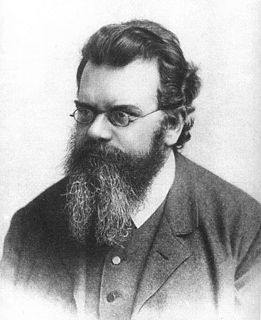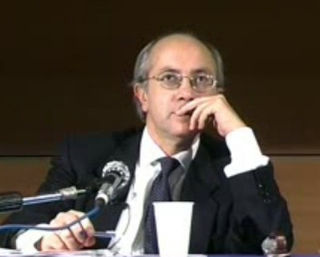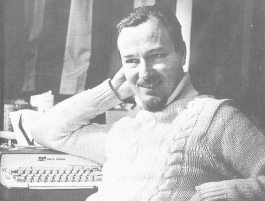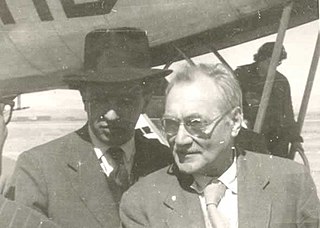Top 68 Hegel Quotes & Sayings
Explore popular Hegel quotes.
Last updated on April 14, 2025.
The problems of human subjectivity replicate themselves at many different scales, like the overtones and undertones in a stringed instrument striking ghost-intervals up and down into infinity. This is not Hegel's ingenuity, it is his responsiveness to the organic structure in us that echoes itself throughout the whole architecture.
H.P.Lovecraft could've been trying to do a Marx to Hegel, that kind of thing, in other words, turn the thing upside down and crawl around inside it. But, look, the guy was eating poorly, he had like a quart of ice cream a day. He was suffering constantly near the end. He wasn't concerned with his body at all, not the way we're concerned with our bodies nowadays.
Hegel's philosophy is so odd that one would not have expected him to be able to get sane men to accept it, but he did. He set it out with so much obscurity that people thought it must be profound. It can quite easily be expounded lucidly in words of one syllable, but then its absurdity becomes obvious.
Hegel understood the Heisenbergian reality of knowing: yes, it would be nice if we could somehow delicately capture the truth and bring it closer to ourselves without altering it, "like a bird caught with a limestick." But the reality is, every truth we manage to know is altered, deformed by our very "encheiresis naturae," by the act of our taking-in-hand of nature (to borrow the alchemists' phrase from Goethe's Faust).
I never think in terms of alienation; it's the others who do. Alienation means one thing to Hegel, another to Marx and yet another to Freud; so it is not possible to give a single definition, one that will exhaust the subject. It is a question bordering on philosophy, and I'm not a philosopher nor a sociologist. My business is to tell stories, to narrate with images - nothing else. If I do make films about alienation - to use that word that is so ambiguous - they are about characters, not about me.
To go straight to the deepest depth, I went for Hegel; what unclear thoughtless flow of words I was to find there! My unlucky star led me from Hegel to Schopenhauer . . . Even in Kant there were many things that I could grasp so little that given his general acuity of mind I almost suspected that he was pulling the reader's leg or was even an imposter.
History is one long chain of reflections. Hegel also indicated certain rules that apply for this chain of reflections. Anyone studying history in depth will observe that a thought is usually proposed on the basis of other, previously proposed thoughts. But as soon as one thought is proposed, it will be contradicted by another. A tension arises between these two opposite ways of thinking. But the tension is resolved by the proposal of a third thought which accommodates the best of both points of view. Hegel calls this a dialectic process
Since substance is infinite, the universe as a whole, i.e., god, Hegel is telling us that philosophy is knowledge of the infinite, of the universe as a whole, i.e, god. You cannot get more metaphysical than that. I think that Hegel scholars have to admit this basic fact rather than burying their heads in the sand and trying to pretend that Hegel is concerned with conceptual analysis, category theory, normativity or some such contemporary fad.
Hegel seems to me to be always wanting to say that things which look different are really the same. Whereas my interest is in showing that things which look the same are really different. I was thinking of using as a motto for my book a quotation from King Lear: 'I’ll teach you differences'. ... 'You’d be surprised' wouldn’t be a bad motto either.
The auspices for philosophy are bad if, when proceeding ostensibly on the investigation of truth, we start saying farewell to all uprightness, honesty and sincerity, and are intent only on passing ourselves off for what we are not. We then assume, like those three sophists [Fichte, Schelling and Hegel], first a false pathos, then an affected and lofty earnestness, then an air of infinite superiority, in order to impose where we despair of ever being able to convince.
As Karl Marx once noted: 'Hegel remarks somewhere that all great, world-historical facts and personages occur, as it were, twice. He forgot to add: the first time as tragedy, the second as farce.' William Jennings Bryan and the Scopes trial was a tragedy. The creationists and intelligent design theorists are a farce.
The word change, so dear to our Europe, has been given a new meaning: it no longer means a new stage of coherent development (as it was understood by Vico, Hegel or Marx), but a shift from one side to another, from front to back, from the back to the left, from the left to the front (as understood by designers dreaming up the fashion for the next season).
There's a sense in which Marx does contribute to the fund of human knowledge, and we can no more dismiss him than we can [George] Hegel or [Jean-Jacques] Rousseau or [Baruch] Spinoza or [Charles] Darwin; you don't have to be a Darwinian to appreciate Darwin's views, and I don't have to be a Marxist to appreciate what is valid in a number of [Karl] Marx's writings-and Marx would call that a form of simple commodity production rather than capitalism.
The fact is that philosophy has been a decisive source of inspiration in all the great crises that Europe has faced. It has been so in the time that preceded the fall of the Roman Empire, when Augustine of Hippo delineated the features of a new spiritual civilization; in the age of religious wars, when Descartes and Hobbes established the principles of modern science and politics; and at the turn of the French Revolution, interpreted by Kant and Hegel as an event destined to change the history of the world.
[T]ruly to escape Hegel involves an exact appreciation of the price we have to pay to detach ourselves from him. It assumes that we are aware of the extent to which Hegel, insidiously perhaps, is close to us; it implies a knowledge, in that which permits us to think against Hegel, of that which remains Hegelian. We have to determine the extent to which our anti-Hegelianism is possibly one of his tricks directed against us, at the end of which he stands, motionless, waiting for us.
Protestantism, of course, is much more explicitly divided into different traditions - the Pentecostals, the Anglicans. But there is the main tradition of Protestantism that comes out of the Reformation and that produced people like Kant and Hegel and so on, who are not normally thought of as being people writing in a theological tradition, although Hegel, of course, wrote theology his whole life.
The man who cannot wonder, who does not habitually wonder (and worship), were he President of innumerable Royal Societies, and carried the whole Mecanique Celeste and Hegel's Philosophy, and the epitome of all Laboratories and Observatories with their results, in his single head, is but a Pair of Spectacles behind which there is no Eye. Let those who have Eyes look through him, then he may be useful.
As a cultural-intellectual power and a moral ideal, collectivism died in World War II. If we are still rolling in its direction, it is only by the inertia of a void and the momentum of disintegration. A social movement that began with the ponderous, brain-cracking, dialectical constructs of Hegel and Marx, and ends up with a horde of morally unwashed children stamping their foot and shrieking: "I want it now is through."













































